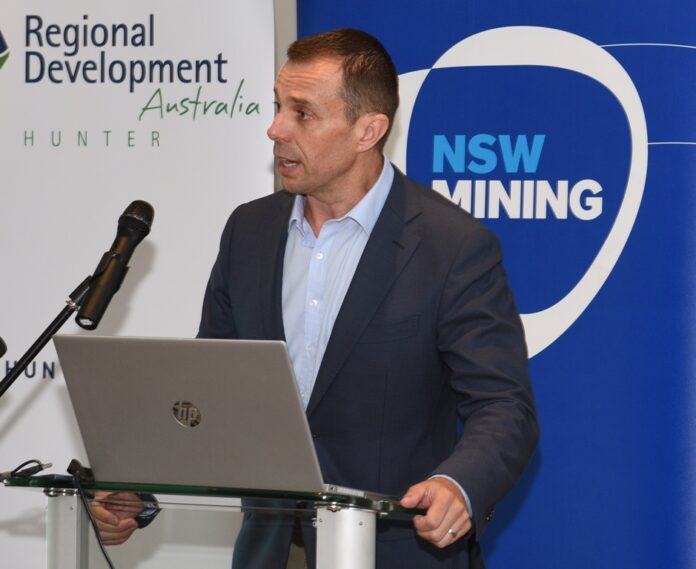Never before has Stephen Galilee felt so much love.
With the crucial Upper Hunter by-election looming, and with a cast of thousands putting their hands up for the vacant state seat that takes in Muswellbrook and Singleton, it appears everyone has jumped on the mining bandwagon.
Not that the NSW Minerals Council CEO is complaining.
“The local mines have been inundated with requests for political visits,” Mr Galilee said.
“And, we’ve received strong declarations of support for the coal export sector from the Liberal/Nationals coalition, the Labor party, the Shooters, Fishers and Farmers, and One Nation.
“Miners and their families have never felt so appreciated.
“It’s great to finally see such a strong display of broad political support for the NSW industry.”
But, Mr Galilee is slightly sceptical about the authenticity of the backing.
“How long will it continue?” he asked.
“Is it genuine – or will mining families suffer the political equivalent of being dumped by text message once the by-election is over?
“The contribution of mining to the Upper Hunter and the region is undeniable.
“According to our annual Economic Impact Survey, more than 7,000 people in the electorate are directly employed in the mining sector; and in excess of 1000 local businesses are part of the supply chain.
“So, directly or indirectly, the coal industry supports thousands of people in thousands of jobs.
“That’s thousands of mining-related votes up for grabs in a critical by-election.”
Mr Galilee said the industry’s future would also be one of the key factors that determined the result, along with other local issues.
“More broadly across the Hunter, mining contributes more than 25% of the economic activity of the region, providing an important source of jobs and investment, together with other industries like tourism and agriculture,” he stated.
“This massive contribution has remained strong over the past decade.
“There are fewer mines in the region now than there were 10 years ago, yet coal output and export volumes doubled from 2007 to 2014 and have remained at or near record levels since then because, like other industries, mining adapts and innovates over time.
“Coal mining jobs have remained relatively stable, too, despite the decline in the overall number of operating mines.”
Mr Galilee said there were also more opportunities on the horizon for the Hunter to further grow and develop.
“Right now in the NSW planning system there are eight mining projects in the pipeline for the region with the potential to deliver about $2.5 billion in investment and nearly 4,200 local jobs,” he explained.
“While one is for a new underground mine, the rest are for extensions of existing operations.
“Coal mining communities are resilient and tough.
“They know most of the political love they’re currently getting is because of the by-election.
“They will also be waiting to see if all of their current political suitors keep up the love once the result is known.
“Whatever the by-election result, the next general election in NSW is also due in less than two years.
“The seat of Upper Hunter will be up for grabs again, as will a swag of other mining-related electorates.
“Mining families across NSW will neither forgive nor forget any political party or candidate that fails to continue their support for the coal sector once the by-election is over.”







